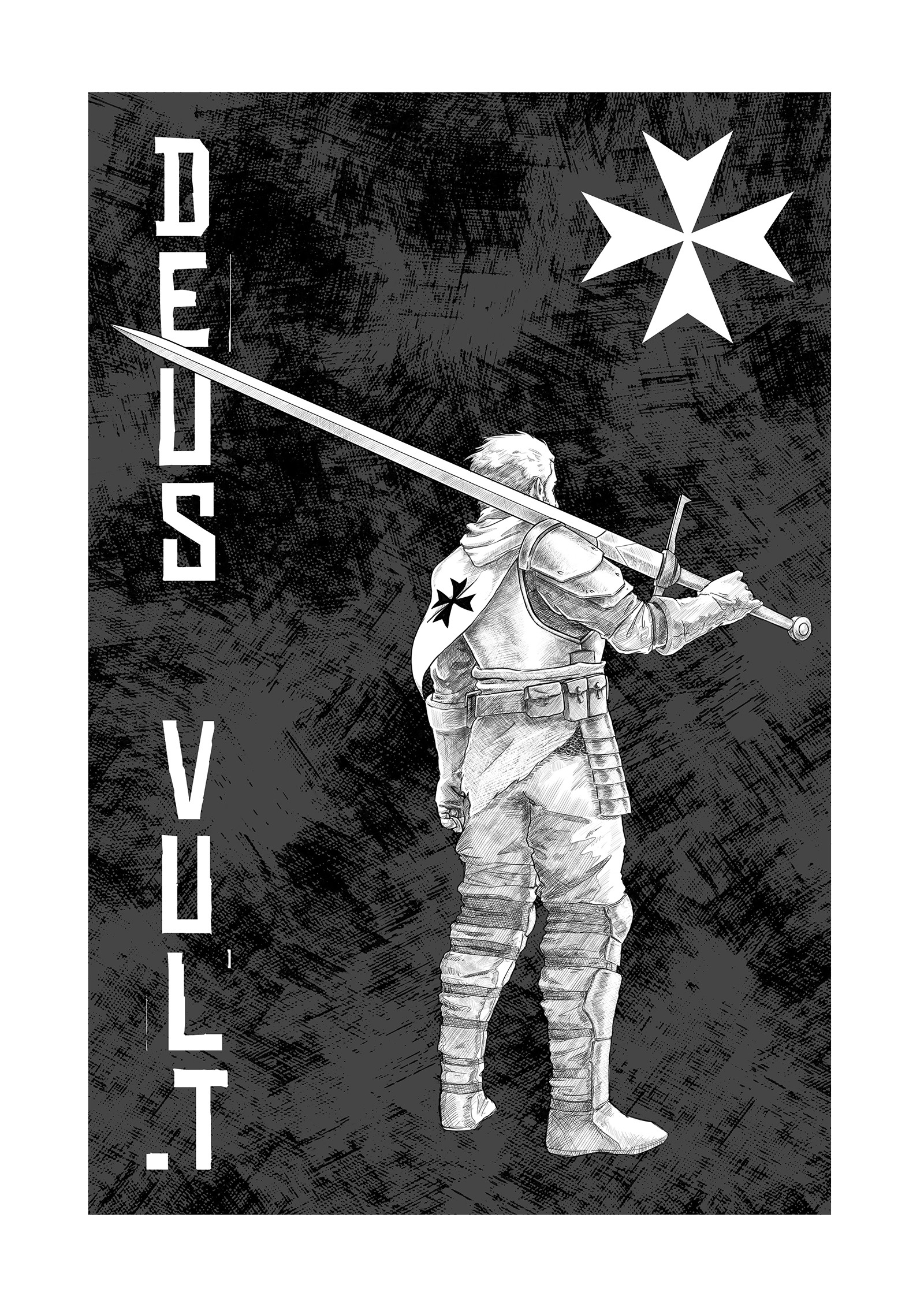
Then as later, of course, pilgrims paid a tax in return for protection against banditry in the Holy Land, a protection few European kings could guarantee in their own dominions in the Dark Ages. In the eighth century, six European pilgrimages were made to Jerusalem in safety. Peace in the Holy Land was a powerful inducement to Christian pilgrimage in the Middle Ages. It was thus that nuns, priests and rabbis tended their shrines and observed their sacred rites in Jerusalem with little interference, and that the Patriarch of Jerusalem could write of the Muslim lords: "They are just and do us no wrong nor show us any violence." For the Koran decrees that Christians, along with Jews and Zoroastrians, are with Muslims "People of the Book" who, through belief in a single omnipotent God, share His protection. That the fateful confrontation did not occur until 461 years after the conquest of Jerusalem in 638 under Muhammad's successor, the Caliph Omar, is attributable to some extent to the moderation and tolerance of the city's Muslim rulers. It was probably inevitable, therefore, in a world and an age when spiritual leadership derived considerable vitality from temporal power, that Christianity and Islam would one day collide over possession of a city holy to both. But though the roads were different, their starting points were the same-the sanctified soil of Jerusalem. In the eastern Mediterranean and across North Africa into Spain it was Islam. In the Byzantine Empire it was the Greek Orthodoxy of Constantinople.


For those born in Europe, it was that espoused by the Catholic Church of Rome. Which road to heaven one took was determined mainly by geographical accident. Fortunately, the path to paradise was clearly marked by the signposts of prayer, penance and pilgrimage, and in following them medieval man devoted his best energies. With eternity so close at hand, the poor, illiterate, overworked and underfed common man, unable to satisfy his hunger for life on earth, focused his hopes on heaven.

Near, too, was heaven: war, pestilence and famine combined to give medieval man so slippery a grip on life that fewer than half those born would see maturity, and 30 years was the average man's life span. To medieval man, God was as near as the cross he wore around his neck.

"God wills it!" they cried, and so began the Crusades-that epic struggle of Christian and Muslim for a land sacred to both.


 0 kommentar(er)
0 kommentar(er)
